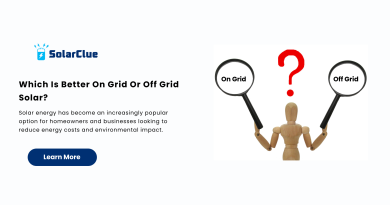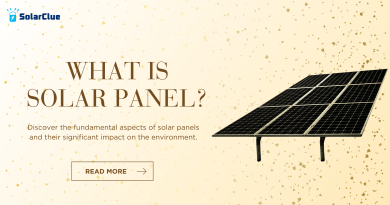Can You Run Air Conditioner Off Solar Panels?
As temperatures rise and energy costs increase, using solar panels to power air conditioning systems is an attractive option for homeowners and businesses alike. This guide explores the feasibility, costs, and benefits of running an air conditioner entirely on solar power, the role of battery storage and grid integration, and practical steps to optimize your solar-powered cooling system.
Table of Contents
- 0.1 1. Understanding Air Conditioner Energy Consumption
- 0.2 2. Calculating the Solar Panel Size Needed for Air Conditioning
- 0.3 3. The Role of Battery Storage in Powering Air Conditioners
- 0.4 4. Grid-Tied vs. Off-Grid Solar Systems for Air Conditioning
- 0.5 5. The Costs and Benefits of Using Solar Power for Air Conditioning
- 0.6 6. Government Incentives and Rebates for Solar-Powered Air Conditioning
- 0.7 7. Case Studies of Successful Solar-Powered Air Conditioning Systems
- 0.8 8. The Future of Solar Power and Air Conditioning
- 0.9 9. Addressing Common Misconceptions About Using Solar Panels for Air Conditioning
- 1 FAQs About Using Solar Panels to Power Air Conditioners
- 2 Table: Comparison of Grid-Tied vs. Off-Grid Solar Systems for Air Conditioning
- 3 Conclusion
1. Understanding Air Conditioner Energy Consumption
Before determining the feasibility of using solar panels to power an air conditioner, it’s essential to understand how much energy your AC unit consumes:
- BTU Rating and Power Consumption: Air conditioners are rated by their cooling capacity in British Thermal Units (BTU). The higher the BTU, the more power the AC requires. Typically, a 1.5-ton air conditioner (18,000 BTU) consumes between 1.2 kW to 2.0 kW of power per hour.
- Energy Efficiency Ratio (EER): The EER is a measure of how efficiently an air conditioner uses electricity. Higher EER ratings indicate better efficiency, meaning the AC unit will consume less power for the same cooling output.
- Operating Hours: The total energy consumption depends on how long the air conditioner runs each day. For instance, running a 1.5-ton AC for 8 hours daily can consume approximately 9.6 kWh to 16 kWh.
2. Calculating the Solar Panel Size Needed for Air Conditioning
To determine the number of solar panels needed to power an air conditioner, follow these steps:
- Estimate Daily Energy Consumption: Multiply the air conditioner’s power consumption (in kW) by the number of hours it runs each day. For example, a 1.5-ton AC running for 8 hours at 1.5 kW consumes 12 kWh per day.
- Consider Solar Panel Output: Solar panel output varies depending on location, panel efficiency, and sunlight hours. On average, a 300-watt solar panel produces around 1.2 kWh to 1.5 kWh per day in optimal conditions.
- Calculate the Number of Panels: Divide the total daily energy consumption by the daily output of a single panel. For instance, if the AC requires 12 kWh per day, and each panel produces 1.5 kWh, you would need approximately 8 solar panels.
3. The Role of Battery Storage in Powering Air Conditioners
Battery storage is crucial for powering an air conditioner with solar panels, especially during non-sunlight hours:
- Energy Storage: Batteries store excess solar energy generated during the day, allowing the AC to run at night or during cloudy periods when solar production is low.
- Battery Capacity: To determine the appropriate battery size, calculate the total energy your AC consumes overnight. For example, if the AC uses 12 kWh per night, you would need a battery with at least that capacity.
- Battery Type: Lithium-ion batteries are commonly used due to their high efficiency, longer lifespan, and ability to discharge a large amount of power quickly, which is ideal for air conditioning units.
4. Grid-Tied vs. Off-Grid Solar Systems for Air Conditioning
Deciding between a grid-tied and an off-grid solar system depends on your energy needs and budget:
- Grid-Tied Systems: These systems are connected to the utility grid, allowing you to draw power when solar production is insufficient and sell excess energy back to the grid. This setup provides flexibility and reduces the need for large battery storage.
- Off-Grid Systems: Off-grid systems rely entirely on solar panels and batteries, making them ideal for remote locations without grid access. However, they require substantial investment in battery storage and backup generators to ensure continuous operation.
- Hybrid Systems: A hybrid system combines solar panels, batteries, and grid connection, offering the best of both worlds. It allows for battery storage while also providing grid backup when needed.
5. The Costs and Benefits of Using Solar Power for Air Conditioning
Costs:
- Initial Investment: Installing a solar power system for air conditioning requires a significant upfront investment in solar panels, inverters, batteries, and possibly a backup generator.
- Maintenance Costs: Regular maintenance of solar panels and batteries is necessary to ensure optimal performance and longevity.
- Payback Period: The payback period for a solar-powered air conditioning system varies based on installation costs, energy savings, and available incentives. Typically, it ranges from 5 to 10 years.
Benefits:
- Energy Savings: Once installed, solar panels provide free electricity, significantly reducing or even eliminating your air conditioning energy costs.
- Environmental Impact: Using solar power reduces your carbon footprint, contributing to a cleaner and more sustainable environment.
- Energy Independence: Solar power systems, especially off-grid or hybrid setups, provide energy independence, protecting you from rising energy costs and grid outages.
6. Government Incentives and Rebates for Solar-Powered Air Conditioning
Governments worldwide offer incentives and rebates to encourage solar power adoption:
- Tax Credits: Many countries provide tax credits for solar panel installations, reducing the overall cost of the system.
- Rebates: Local governments or utility companies may offer rebates for installing solar systems, further lowering the financial barrier.
- Feed-In Tariffs: Grid-tied systems can benefit from feed-in tariffs, where you get paid for the excess electricity your system produces and feeds back into the grid.
- Net Metering: Net metering allows you to offset your electricity bill by feeding surplus solar power back into the grid, effectively lowering your energy costs.
7. Case Studies of Successful Solar-Powered Air Conditioning Systems
- Residential Installation in Arizona, USA: A homeowner installed a 5 kW solar panel system with a 10 kWh battery storage to power their 2-ton air conditioner. The system provided 80% of the required energy, with the grid covering the remaining 20%.
- Commercial Office Building in Australia: A commercial building used a 50 kW solar system with a hybrid setup to run multiple air conditioning units. The system reduced energy costs by 60% and achieved a payback period of 6 years.
8. The Future of Solar Power and Air Conditioning
The integration of solar power with air conditioning is expected to grow as technology advances:
- Improved Panel Efficiency: As solar panel efficiency improves, fewer panels will be needed to generate the same amount of power, making it more feasible to run energy-intensive appliances like air conditioners.
- Advancements in Battery Technology: Future battery technologies, such as solid-state batteries, promise higher energy density, longer life, and lower costs, making solar-powered air conditioning more accessible.
- Smart Energy Management: Innovations in smart energy management systems will optimize the use of solar power, automatically adjusting AC usage based on energy availability, weather conditions, and occupancy.
9. Addressing Common Misconceptions About Using Solar Panels for Air Conditioning
- “Solar Panels Can’t Power Air Conditioners”: While air conditioners are energy-intensive, a properly sized solar system can effectively power them, especially when paired with battery storage.
- “Solar Power Isn’t Reliable Enough for AC”: Modern solar systems, especially hybrid setups, are reliable and can provide continuous power, even during cloudy days or at night.
- “Solar-Powered AC Is Too Expensive”: While the initial investment is high, government incentives and long-term energy savings make solar-powered AC a cost-effective solution in the long run.
FAQs About Using Solar Panels to Power Air Conditioners
Q1: Can solar panels power an air conditioner?
A1: Yes, solar panels can power an air conditioner, especially when combined with battery storage and grid integration to ensure continuous operation.
Q2: How many solar panels do I need to run an air conditioner?
A2: The number of panels depends on the AC unit’s power consumption and your location. On average, you might need 8-10 solar panels to power a 1.5-ton AC unit.
Q3: Do I need batteries to run an air conditioner on solar power?
A3: Batteries are essential for running an AC unit during non-sunlight hours or in off-grid setups. They store excess solar energy generated during the day.
Q4: Is it cheaper to run an air conditioner on solar power?
A4: While the initial setup cost is high, solar-powered AC can significantly reduce energy costs over time, making it cheaper in the long run.
Q5: What happens on cloudy days or at night?
A5: During cloudy days or at night, battery storage or grid power can supplement solar energy to ensure the air conditioner continues running.
Q6: Can I use an off-grid solar system for air conditioning?
A6: Yes, but it requires a larger solar array and substantial battery storage to ensure reliable operation.
Q7: What are the government incentives for solar-powered air conditioning?
A7: Incentives include tax credits, rebates, feed-in tariffs, and net metering, which can significantly reduce the cost of installing a solar power system.
Q8: How does using solar power impact the lifespan of my air conditioner?
A8: Solar power does not negatively impact the lifespan of your air conditioner. If anything, consistent power supply from a solar system could potentially reduce wear and tear.
Table: Comparison of Grid-Tied vs. Off-Grid Solar Systems for Air Conditioning
| System Type | Initial Cost | Energy Independence | Reliability | Ideal For | Battery Requirement |
|---|---|---|---|---|---|
| Grid-Tied | Moderate | Low to Moderate | High (with grid backup) | Urban or suburban areas | Optional (for energy storage) |
| Off-Grid | High | High | High (with adequate storage) | Remote or rural locations | Essential |
| Hybrid | High | High | Very High (dual backup) | Areas with unreliable grids | Essential |
Conclusion
Using solar panels to power an air conditioner is not only feasible but also offers significant cost and environmental benefits. By carefully sizing your solar system, integrating battery storage, and considering grid-tied or off-grid options, you can achieve a reliable and efficient cooling solution that reduces your carbon footprint and energy costs. As solar technology continues to advance, the synergy between solar power and air conditioning will only grow stronger, making this an increasingly attractive option for homeowners and businesses alike.



